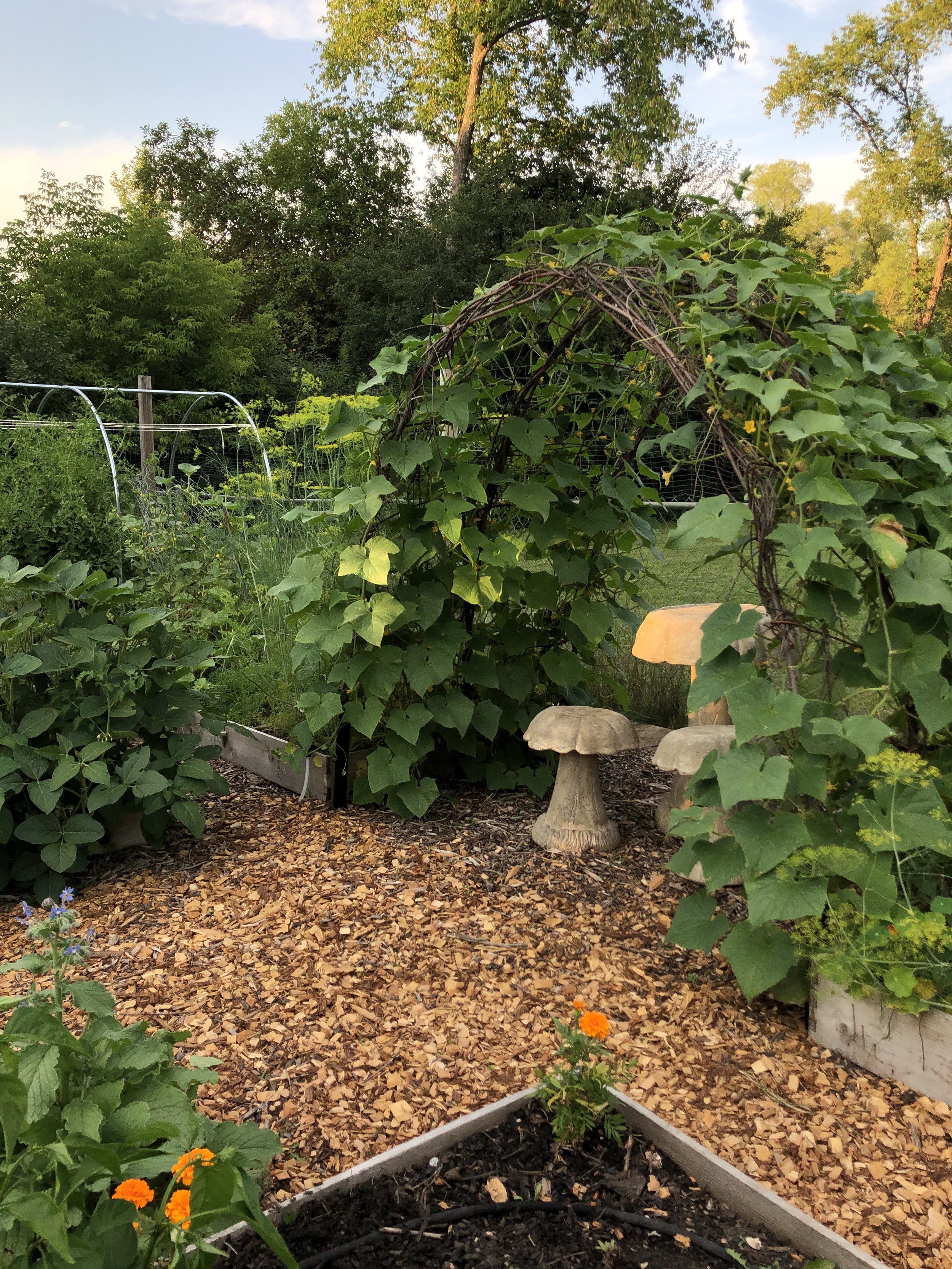If you planted even one row of green beans this season, you are probably experiencing a wonderful windfall of beans right now. If not, you can find loads of beans in all sorts of colors at your local farmer’s market this time of year. In addition to freezing or canning your beans, a great option for preservation is to ferment them. You likely already have the few items you will need on hand, and beyond preserving your beans for at least a year, fermenting offers numerous health benefits – namely, probiotics, enzymes and preserved and enhanced vitamin content.
Healthy Gut, Strong Immune System
The bacteria that populate a jar of fermented beans are lactic-acid producing, so as their population grows, they release the lactic acid that is responsible for pushing out undesirable microbes and preserving your food long term. These “friendly” bacteria are the same class as those found in yogurt and probiotic supplements you can pay a lot of money for from the store. A healthy population of beneficial bacteria in your gut means better overall health, since a whopping 70% of our immune system resides in the intestines. Furthermore, the vitamin content of the beans themselves is preserved through fermentation, whereas the vitamin content of raw – not to mention cooked – vegetables degrades significantly every day from the time they are picked. In addition to the high vitamin and probiotic content of fermented produce, it is also rich in enzymes that help your body to digest whatever else you’re eating! The ideal would be to have a small side of something fermented with every meal. Try it and see what changes you notice in your health!
Getting Started
All you will need is a tightly sealing glass jar (a mason jar or old pickle jar or something similar works), salt, water, spices and your beans. Beans are just one of the vegetables you can ferment – the possibilities are endless! Feel free to experiment using the recipe below, and rest assured that as long as you follow the instructions for the brine, you will be more than safe. The lactic acid both preserves the food and destroys harmful bacteria. If you see the obvious signs of a healthy ferment (described below), you have nothing to fear! Truly, you are more likely to get sick from fresh spinach from the grocery store – unfortunate but true!
Fermented Green Beans
Ingredients
2 tbsp Salt
1 quart water preferably filtered, spring or pre-boiled to reduce chlorine
1-2 flower heads fresh dill
2 cloves garlic
1 tsp red pepper flakes
One grape, horseradish or oak leaf (optional)
1 large handfull fresh beans
Instructions
Prepare a basic brine by dissolving the 2 tbsp salt in 1 quart of water. It helps to heat a cup of the water, dissolve the salt in it, and then add three cups of cold water to cool it down. You do not want to add hot water to the beans, as it may kill the beneficial microbes that will help get the fermentation process going.
In the bottom of your quart jar, drop whatever spices you want - dill, garlic and red pepper flakes are suggested here, but anything you have will do! Also add your grape, horseradish or oak leaf (literally from a tree in your yard is fine, as long as it is not treated chemically). These items all tannins, which are an organic substance that will help keep your veggies crisp.
Next, stuff your jar as tightly as possible with the beans, leaving a couple inches headspace at the top of the jar. Once the beans are in, fill the jar with your prepared brine to cover the beans by about an inch, while leaving about an inch of air space. Cap the jar with your lid and seal tightly.
Let the jar sit at room temp for about a week, "burping" it once or twice a day by briefly cracking the seal to release pressure and then retightening. You’ll want to put them in a shallow dish or somewhere where a little overflow won’t hurt anything, as the pressure can build up significantly. There won't be much activity in the first day or so, but soon you will notice the brine becoming cloudy and maybe even whitish, you will see fizzing, and you will notice a sour pickle smell starting to develop (that's the lactic acid). These are all good signs that your ferment is active and healthy. After about a week, when the activity has slowed down considerably and the beans are nice and sour, refrigerate or store in a root cellar or very cool basement. The cooler the storage, the longer the beans will last before getting soft and unpalatable. But as long as there isn't mold growing or strange colors or smells, they are good to eat!
Enjoy!












